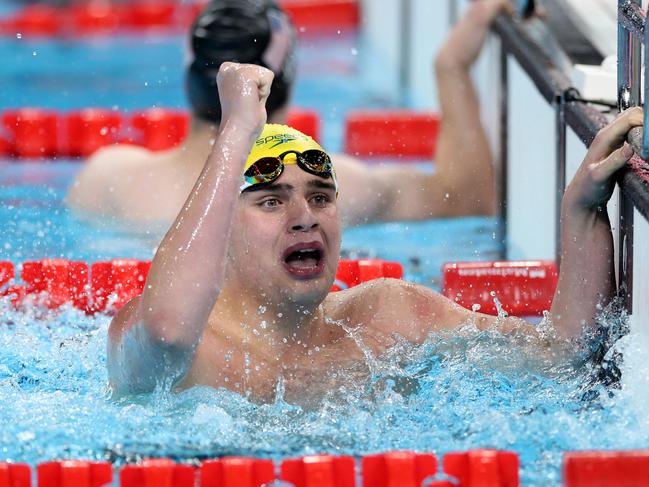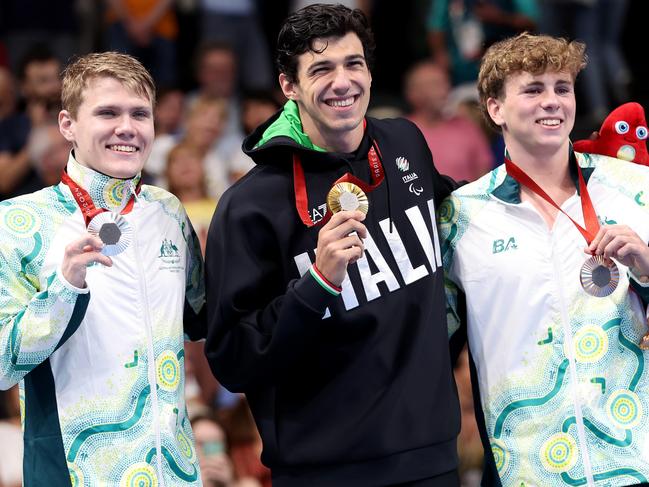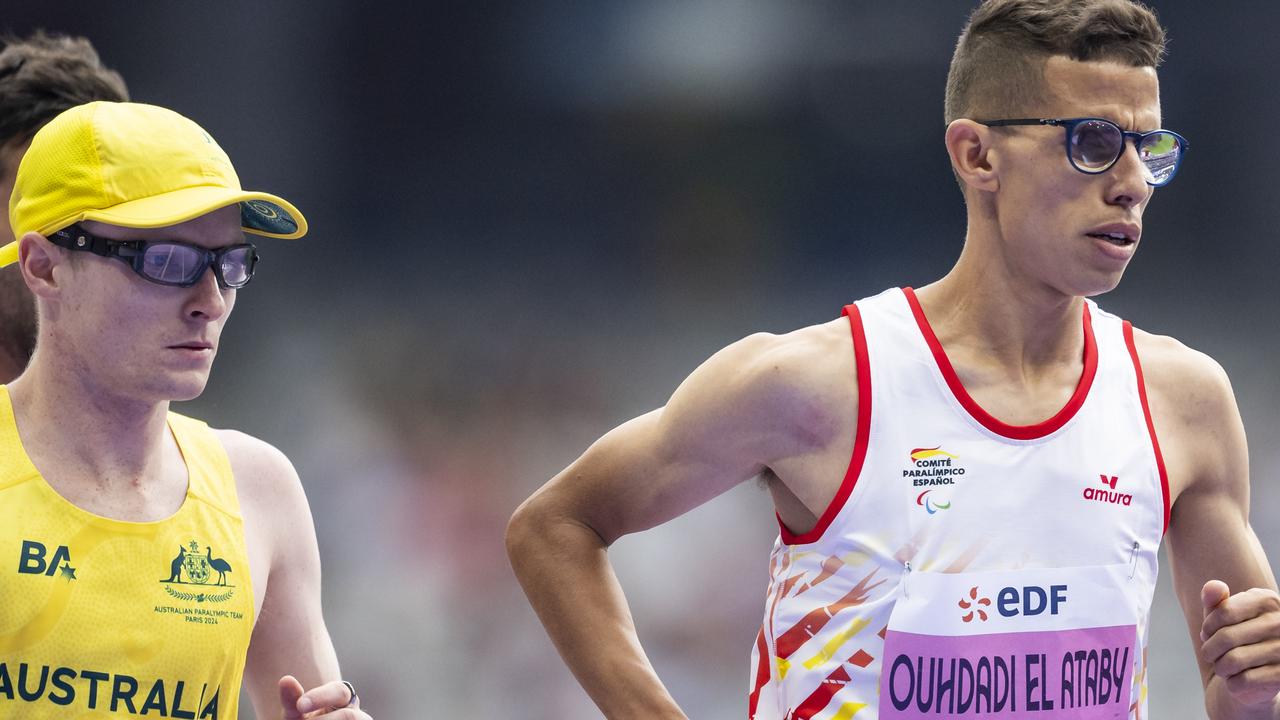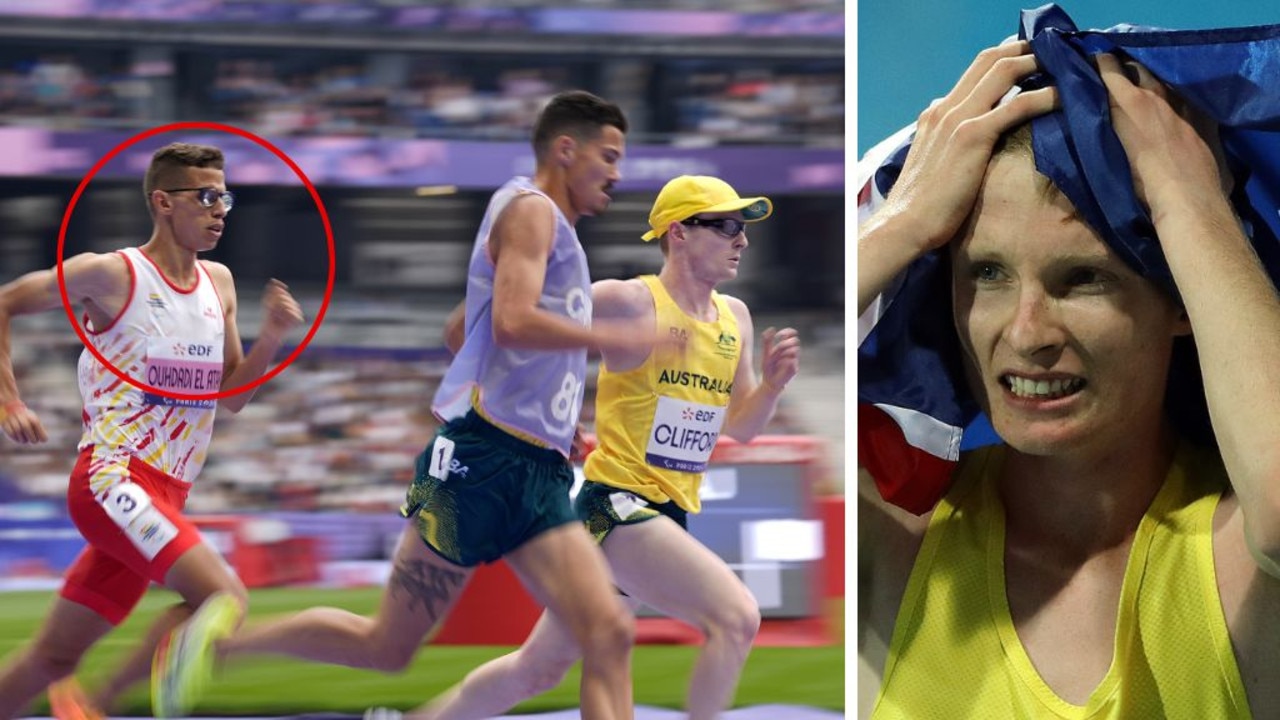Paralympic swim stars put pressure on for increased funding ahead of Brisbane Games
After the Dolphins produced one of their best ever nights in the pool, Paralympic swim stars have urged those in power to increase funding in the lead up to a home Games in Brisbane.
Paralympics
Don't miss out on the headlines from Paralympics. Followed categories will be added to My News.
Australian Paralympic swim star Tim Hodge has called on the government and big business to dip into their pockets and increase funding in the lead up to Brisbane 2032 as the Dolphins face reduced medal return in Paris.
With just one day of swimming left in the French capital, the Dolphins have six golds and 25 medals in total, below their recent Paralympic performances but with hopes of a last day rush.
The Dolphins did win two gold medals in the pool on Saturday morning when Queensland teenager Callum Simpson won his 100m freestyle final in brilliant fashion, earmarking himself as a star of the future who could peak at Brisbane if he stays in the sport, after Ben Hance defended his backstroke title .
“When I first started swimming, I had this goal and to touch that wall in first place, it still feels unreal,” the 17-year-old Simpson said.

“I didn’t even know I won at the time because I saw the other person right beside me coming up and I knew I needed to get the lunge and when I saw my name on the board in first place that’s a feeling I’ll never forget and I’ll keep it for my whole life.
“I am looking forward to Brisbane 2032, it’s going to be an amazing Games. I can’t wait for that.”
Hodge collected silver to add to his earlier two golds while Lewis Bishop, Tom Gallagher, Emily Beecroft and Rachael Watson all won bronze medals.
A strong advocate for Paralympic sport, Hodge said the finding of disability sport in Australia had improved over the years but there was still a lot more that could be done.
“Speaking as a para-athlete, we often face a lot of barriers to joining sport, the grassroots systems aren’t as easily accessible,” he said.
“Especially for young swimmers, that initial financial hurdle of being able to supply a suit or to find a club that is willing to coach is something that I think we really need to change if we want to incentivise participation in para-sport.

“The medal bonuses and the financial support that Paralympians are receiving now is just incredible.
“It really gives us the opportunity and the ability to train and perform as our Olympic peers do, and not have to worry as much about making rent and making sure that I have a suit for the next competition that’s not two years old.”
Hodge said he understood the reasons behind the funding disparities but said the Paralympics deserved more because of the way they resonated with ordinary Australians.
“I know that there was a study done not long ago where they kind of compared all these different Australian teams to who the Australian public related to, who was the most trusted…I’m pretty sure the Australian Paralympic team broke the record for high score on that study. We beat the Olympic team, beat all the NRL teams,” he said.
“I guess we are the one that relates the Australian public the most, because I think that while the Olympics is the epitome of human excellence, the Paralympics is the epitome of human resilience, and for people at home, they can relate.
“They might see someone on the TV missing a leg or an arm or any other number of conditions, and they go, ‘well, they can do that. Why can’t I?’.
“Whereas watching the Olympics, I can go, ‘yes, Australia is the greatest, but I can’t see myself doing that’. I think the Australian public relates more with the Paralympics.”
More Coverage
Originally published as Paralympic swim stars put pressure on for increased funding ahead of Brisbane Games





